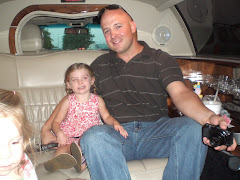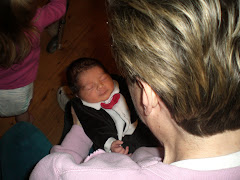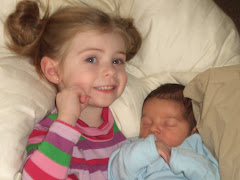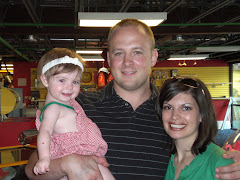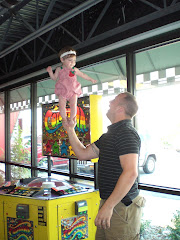The more I work with preteens and teenagers, the more I realize how important it is for parents to be active in the lives of their children and to monitor the influences in their lives. There are many books out there for parents that give insight into parenting teens. Though they have great insight, what I have found is that we have a tendency to think that the issues talked about in the books that kids deal with aren't happening in the lives of our own kids. We find it hard to believe that our kids have been introduced to drugs, sex, pornography, online predators, peer pressure or sexual harassment. This list could go on and on. Our kids don't talk about it around us so we assume it must not be a problem. Now realize, not every child has been introduced to these issues, but more have been than people think. We need to be aware that naivety can be our worst enemy.
I have taught in the public school system and now here at ECS. The barrage of negative influence "those" kids face is the same barrage that "our" kids face. Many times we talk about those not-so-fun issues with our kids on a level that is beneath them. We do this because we want to protect them and we don't want to teach them something before they are ready to handle it. I will preface my next comment by saying I completely agree with the protecting the kids, however, I have found that, many times, the kids know much more than we realize and we aren't dealing with them on the level they are at. We want to teach them how to spell the word "hip" when they already know how to spell the word "hippopotamus." Though they shouldn't know some of the information they know at this age, it is important to realize that most of them do. The reason for this is all the ways our kids are influenced. The technology age we live in sends an overload of information to our kids, much of which can be negative and destructive. Some of the influences in our kids lives here at ECS include facebook, myspace, cell phones, texting, gaming systems and the internet. I encourage you to consider what you are allowing to have access to your child. Avenues, such as facebook and myspace, create a portal where they can talk about whatever they want with no record of it happening. I have personally seen some of what is talked about on there and can guarantee that you, as a parent, would not allow it to happen if you knew of it. Also, FYI, to have a facebook or myspace account, the person signing up has to say they are at least thirteen. These policies would prohibit the vast majority of ECS students from having an account. As a parent, we should be actively monitoring what our kids are doing and the influences in their lives. If you choose to allow them to have these accounts, I recommend you require they give you their login and password. I also recommend you create your own account and be friends with them. On my January blog, I posted an excerpt from "Reaching Teens in their Natural Habitat" by Danny Holland dealing with issue I raised in this entry. He recommends six steps for parents. They are:
1. Recognize that distractions destroy dreams.
2. Train your kids and teens to guard their own focus. Only your kids can protect themselves.
3. Control the type of music, media, and teen entertainment that your kids are exposed to.
4. Starve wrong relationships. It only takes one person to destroy their future.
5. Allow and encourage relationships that enhance their focus on their life purpose.
6. If it doesn't feed, fuel, or fertilize positive focus, forget it.
I am so impressed by the parent involvement here at ECS. Know that our mission here falls right in line with what you want for your child. We strive to motivate students to achieve their God-given potential and to equip them to impact home, church and society for Christ. For them to reach this goal, we must, as a school and as parents, help them guard themselves against what the world and Satan will throw at them, in a developmentally appropriate and timely manner.
Wednesday, October 28, 2009
Wednesday, October 7, 2009
Parent Education - October 09
This month's excerpt is from Creative Correction by Lisa Whelchel.
p 60-63
"The transition from correcting our children's behavior to motivating their hearts is vital. If our kids don't learn to own their decisions, to understand why they should make good choices, they will suffer for it. We can't always keep them from making bad decisions; eventually they must make their own choices. That's what God intended when He gave us free will. He wants our hearts to be in the right place when we make a decision. He says, "If you love me, you will obey what I command" (John 14:15). Our attitudes are more important to Him than our actions-so much so that He doesn't want us to do the right things for the wrong reasons. In fact, God condemned the religious leaders of His day for obeying out of fear, pride, and habit instead of love (see Matthew 23:26).
As a parent, I think I understand why God wants this. Love and obedience that are coerced aren't nearly as wonderful as when they're given freely. For example, as much as I love the kisses I steal from my sleeping children, they're not nearly as sweet as the ones they give me when they wake up in the morning, run down the stairs, and climb onto my lap. With God, the principle is the same. I envision Him sitting on His heavenly throne, anxiously waiting for His children to wake up and pour out their love on Him.
God has given our children the free will to choose or reject Him, so we, their parents, must give them good reasons to follow His ways. The goal is for our kids to make obedient choices because they know it's the right thing to do, because it pleases God-not because they want to avoid correction. If our children are motivated to obey only out of fear, they'll miss the whole point of obedience.
I must confess that if I'd been able to force my children to obey me out of fear while they were young, I would have parented that way. It is so much easier-but it's the wrong approach. In hindsight, I am glad I was unsuccessful at using fear tactics. It would have made life simpler while my kids were young, but I'd rather see them obey me, and God, wholeheartedly, out of love.
Of course, there's always the temptation to let the pendulum swing too far to the other side and neglect to discipline the flesh. If we do not discipline them when they're young, they will have a difficult time disciplining themselves when they are older. We have all seen lives cut short because of self-indulgence. One of the reasons parents often pamper and indulge their kids is that they want to have a wonderful relationship with them. I want that too-but placing too much emphasis on friendship is risky. When we try to be best buddies with our children too soon, giving them lots of pep talks without any corrective discipline, we put ourselves on their level, and they lose the security of knowing someone bigger and wiser is looking out for them. What our children really need when they're young is a parent, not a best friend.
One of the greatest rewards of parenting is friendship with our children; but if we get the prize before we finish the race, the ones who end up being penalized are our children. Our friendship with them will evolve later, as they mature."
p 60-63
"The transition from correcting our children's behavior to motivating their hearts is vital. If our kids don't learn to own their decisions, to understand why they should make good choices, they will suffer for it. We can't always keep them from making bad decisions; eventually they must make their own choices. That's what God intended when He gave us free will. He wants our hearts to be in the right place when we make a decision. He says, "If you love me, you will obey what I command" (John 14:15). Our attitudes are more important to Him than our actions-so much so that He doesn't want us to do the right things for the wrong reasons. In fact, God condemned the religious leaders of His day for obeying out of fear, pride, and habit instead of love (see Matthew 23:26).
As a parent, I think I understand why God wants this. Love and obedience that are coerced aren't nearly as wonderful as when they're given freely. For example, as much as I love the kisses I steal from my sleeping children, they're not nearly as sweet as the ones they give me when they wake up in the morning, run down the stairs, and climb onto my lap. With God, the principle is the same. I envision Him sitting on His heavenly throne, anxiously waiting for His children to wake up and pour out their love on Him.
God has given our children the free will to choose or reject Him, so we, their parents, must give them good reasons to follow His ways. The goal is for our kids to make obedient choices because they know it's the right thing to do, because it pleases God-not because they want to avoid correction. If our children are motivated to obey only out of fear, they'll miss the whole point of obedience.
I must confess that if I'd been able to force my children to obey me out of fear while they were young, I would have parented that way. It is so much easier-but it's the wrong approach. In hindsight, I am glad I was unsuccessful at using fear tactics. It would have made life simpler while my kids were young, but I'd rather see them obey me, and God, wholeheartedly, out of love.
Of course, there's always the temptation to let the pendulum swing too far to the other side and neglect to discipline the flesh. If we do not discipline them when they're young, they will have a difficult time disciplining themselves when they are older. We have all seen lives cut short because of self-indulgence. One of the reasons parents often pamper and indulge their kids is that they want to have a wonderful relationship with them. I want that too-but placing too much emphasis on friendship is risky. When we try to be best buddies with our children too soon, giving them lots of pep talks without any corrective discipline, we put ourselves on their level, and they lose the security of knowing someone bigger and wiser is looking out for them. What our children really need when they're young is a parent, not a best friend.
One of the greatest rewards of parenting is friendship with our children; but if we get the prize before we finish the race, the ones who end up being penalized are our children. Our friendship with them will evolve later, as they mature."
Subscribe to:
Comments (Atom)


